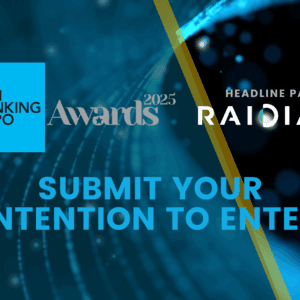SVP Open Banking, Mastercard
For Open Banking to flourish there needs to be a fundamental shift in the market, but I am confident that it will happen.
It’s not just regulation – it’s the potential for a global movement. Open Banking has the power to not only fundamentally change the way we manage our finances as consumers and businesses, but the way people transact with one another on a global scale. The UK is a trailblazer and Europe is next as financial institutions ensure PSD2 requirements are met.
Open Banking brings responsibilities and risk. These present innovators with opportunities to create bold and brave solutions. We recognise the major role we can play in facilitating trust and connectivity by providing what we hope will become a global standard Application Programming Interface (API) set. Mastercard is able to curate new commercial relationships between counterparts, third parties and banks, even when they are geographically distant.
The scope to create ground-breaking services and products has no limits. It’s not the data or the underlying technology that’s important, it’s how it is implemented through smart and intelligent analytics to create painless, hassle-free solutions that reimagine how we transact. We’re already seeing them come to the market, for example with Coconut and Tully.
Account aggregation services are a logical starting point and most banks are working on delivering these now. However, this is just the beginning as consumers constantly demand more tech-driven solutions.
Perceived value and trust will drive sign-up. There has been speculation that sharing financial data will be a barrier. But if you present a consumer or a business with a product or service that delivers sufficient value, they won’t think twice. The millennial generation and Gen Z, important groups for Open Banking adoption, are generally comfortable with the concept of sharing data when it’s shared for benefit. After all, people’s most intimate thoughts and experiences are shared across social media or we happily buy and pay using Amazon’s one-click.
Problems will be solved by established, trusted providers. It’s not just consumers and businesses who need to be comfortable with the concept of their data being shared, but also the banking sector – opening up bank account data to third parties is a huge shift for the traditional sector. And when PSD2 takes full effect, there’s going to be a host of European third parties entering the market – reporting to several different regulators.
With connectivity the foundation of Open Banking, third parties and banks are going to need to find ways to interact successfully. Quality infrastructure is a major consideration for the industry, which is one of the reasons we created ‘Open Banking Connect’ – a single connection to multiple financial institutions’ Open Banking interfaces. Mastercard is also working with multiple banks to help prevent fraud through building a wider view than is possible for any one bank.
Dispute resolution is another key concern. By working with a large number of industry participants, we have been able to develop a rule set to help resolve problems that will inevitability arise.
Open Banking will succeed if the industry is given time to develop – the innovators need space and opportunity within the new regulatory framework.
As the momentum grows, we’ll see the full impact of Open Banking; new collaborations between unlikely partners, banks delivering increasingly innovative products and services, new industries coming onboard as they realise the value in underlying data. For banks, collaborations with credible organisations will free up in-house development teams to develop innovative customer-centric solutions.
We all have a part to play by pushing at the boundaries of creativity to ensure Open Banking is a success. Currently there are no real first-movers with dominating market positions. It’s still all to play for; from fintech start-ups to household retail banking names.










